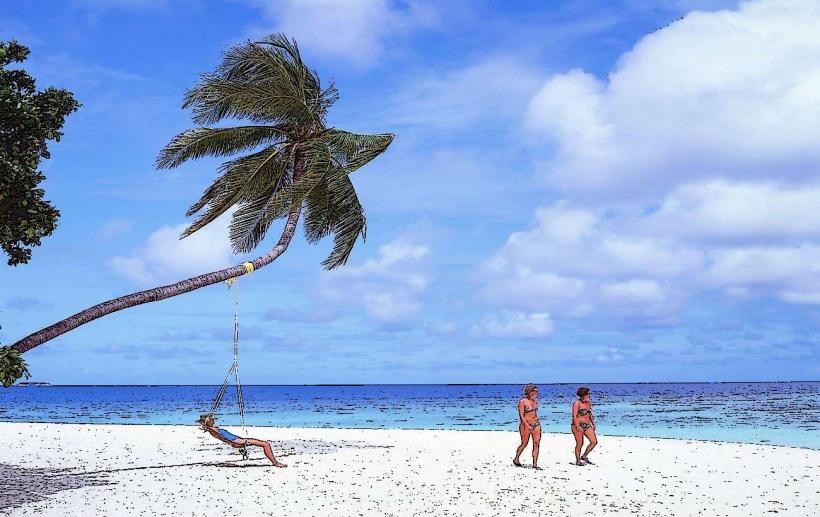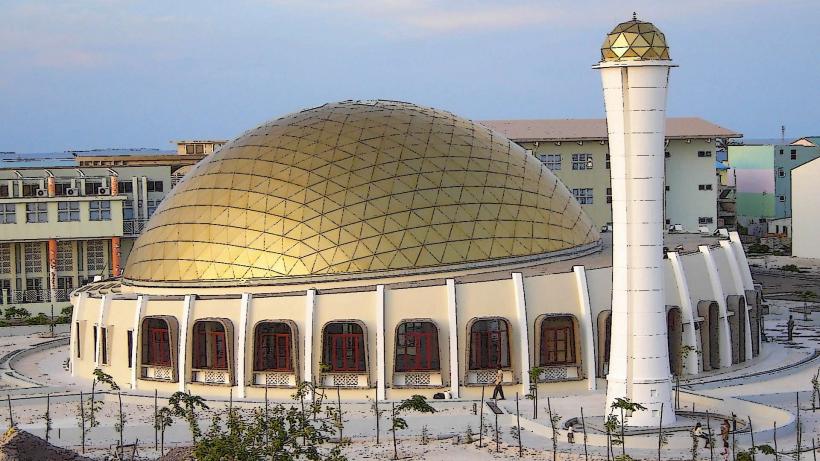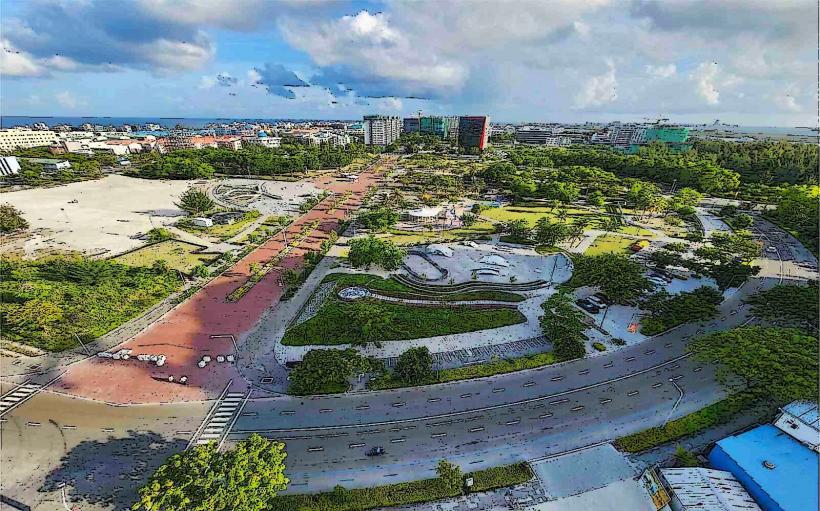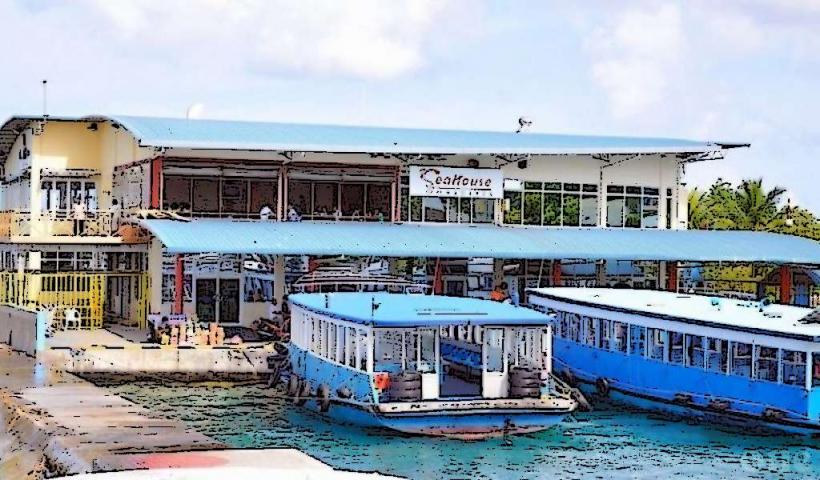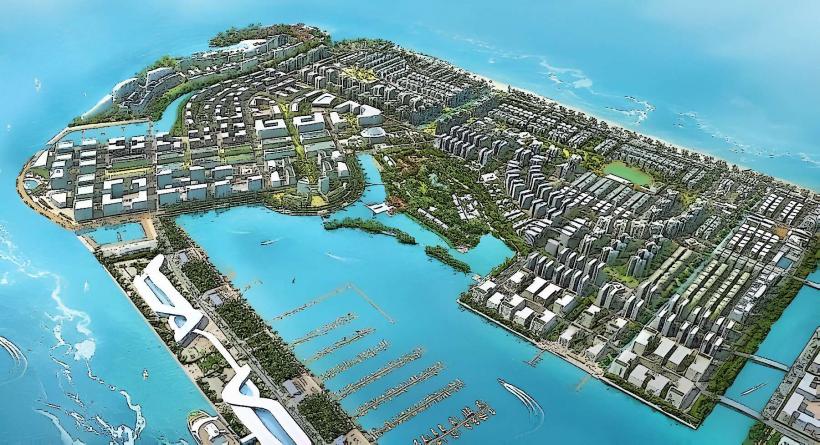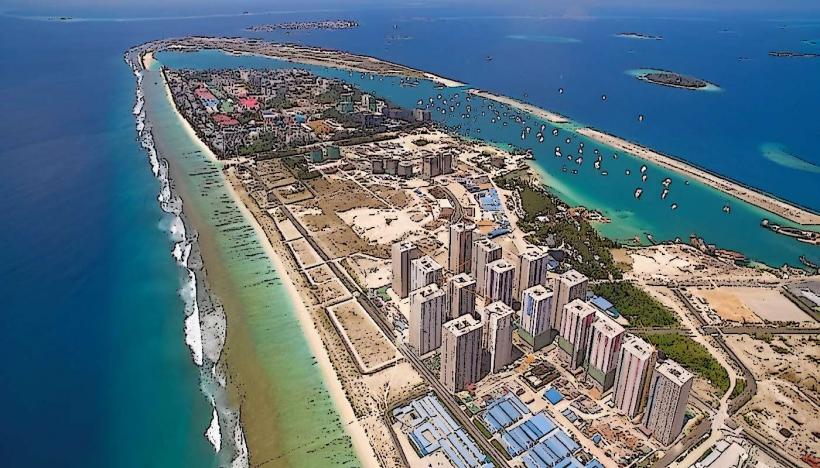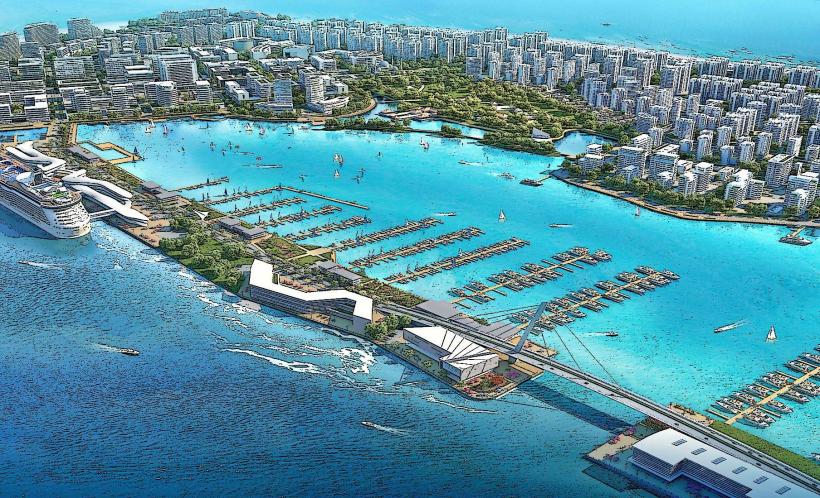Information
Landmark: Hulhumalé Eco ParkCity: Hulhumale
Country: Maldives
Continent: Asia
Hulhumalé Eco Park, a serene and environmentally focused space, exemplifies the Maldives’ commitment to sustainability and green urban development. Located in Hulhumalé, the park combines natural beauty, eco-friendly practices, and recreational facilities, providing a haven for relaxation and community activities.
Key Features of Hulhumalé Eco Park:
Location and Accessibility:
- Proximity to Key Areas: The Eco Park is situated in Hulhumalé, a modern reclaimed island near Malé. Its central location makes it easily accessible for both residents and visitors.
- Transportation Options: Public buses, taxis, and bicycles provide convenient access to the park, encouraging eco-friendly commuting.
Sustainable Design:
- Green Infrastructure: The park is designed to incorporate sustainable materials, renewable energy, and water conservation systems. Solar-powered lighting and rainwater harvesting are prominent features.
- Natural Landscaping: The park is characterized by lush vegetation, including native trees, shrubs, and ornamental plants that contribute to its biodiversity.
Recreational Opportunities:
- Walking and Jogging Trails: Shaded pathways and well-maintained trails offer a relaxing environment for jogging, walking, or simply enjoying the outdoors.
- Picnic Spots: Designated picnic areas with seating and shelters provide ideal settings for family outings and social gatherings.
- Playgrounds: Dedicated play areas for children include eco-friendly equipment, promoting active play in a safe and sustainable environment.
Educational Features:
- Eco-Learning Spaces: The park includes educational displays and interactive exhibits about environmental conservation, renewable energy, and marine biodiversity.
- Community Workshops: Regular workshops and activities are organized to promote environmental awareness and sustainable practices among visitors.
Biodiversity and Conservation:
- Native Flora and Fauna: Hulhumalé Eco Park supports a variety of native plant species and serves as a habitat for birds, butterflies, and small mammals, fostering local biodiversity.
- Conservation Projects: Initiatives such as tree planting and coral reef awareness campaigns are part of the park’s efforts to contribute to environmental sustainability.
Community and Cultural Activities:
- Outdoor Events: The park hosts open-air yoga sessions, fitness programs, cultural performances, and eco-themed festivals, fostering a sense of community.
- Art Installations: Eco-inspired artworks and sculptures enhance the park’s visual appeal and highlight the importance of sustainability.
Tourism Appeal:
- Eco-Tourism Destination: As part of Hulhumalé’s vision for sustainable urban living, the park attracts eco-conscious tourists and visitors seeking a tranquil retreat.
- Photo Opportunities: Scenic landscapes and thoughtfully designed spaces make the park a popular spot for photography.
Future Plans:
- Expanded Facilities: There are plans to introduce more eco-friendly amenities, such as solar-powered charging stations, additional seating areas, and green pavilions.
- Community Engagement: Continued focus on engaging the local community through participatory programs and volunteer opportunities.
Environmental Impact:
- Carbon Offset: By incorporating green spaces into an urban environment, the park helps offset carbon emissions and mitigate the effects of urbanization.
- Waste Management: The park implements a strict no-plastic policy and promotes waste segregation and recycling.
Conclusion:
Hulhumalé Eco Park is a testament to the Maldives’ dedication to sustainability and environmental stewardship. By combining recreational facilities with conservation efforts, the park serves as a sanctuary for residents and visitors while raising awareness about the importance of preserving the natural environment. It is not only a place of relaxation but also an educational platform that inspires eco-friendly living.

